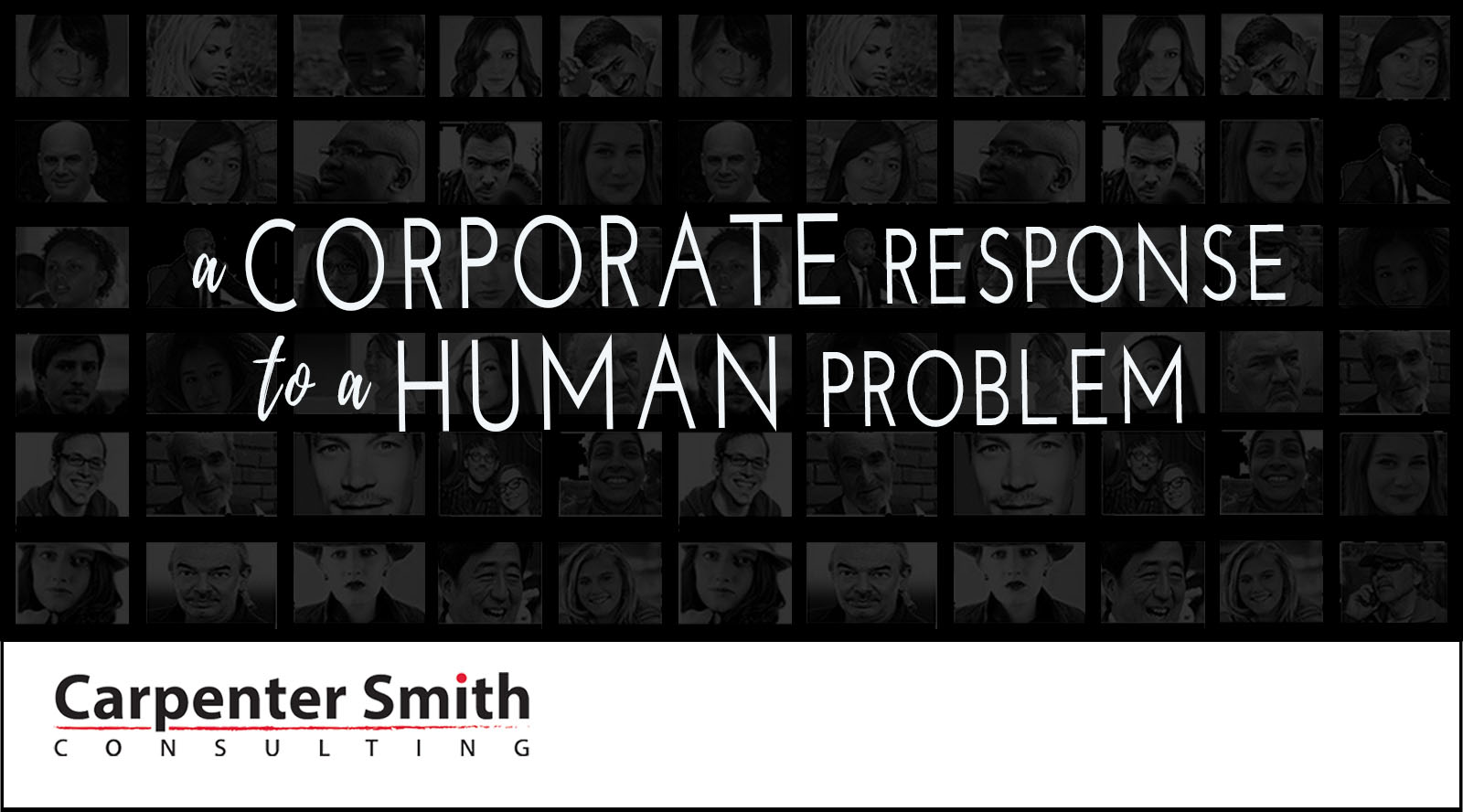We teach leaders the importance of pausing before acting so that they can decrease their reactivity and respond as thoughtful, impactful leaders. One problem that we’re seeing during this Covid-19 pandemic crisis is that some leaders are failing to differentiate between the corporate problems and the human ones.
While reacting seems efficient, leadership centrally requires that a leader take a moment to truly consider the best response to a situation rather than reacting out of habit. Reacting out of habit can diminish a leader’s credibility, and break down trust in core relationships.
We’re seeing a range of leaders react with a corporate response when the true act of leadership is a response to the human experience of this current crisis.
before acting and ask themselves, “Is what I am about
to do or say in alignment with my goals?”
Corporate responses focus on trying to fix something by making financial cuts, enforcing rules or policies, re-organizing, reducing staff, etc. These are important responses when it’s business as usual.
Human problems are not a result of problem humans. They are the things that people must deal with and endure because of the uncertainty of a crisis—in this case the COVID-19 pandemic, and its disruption of the economy.
Leaders who are agile enough to understand this distinction will create more effective and committed teams through the crisis and after the crisis has passed. Those leaders who can’t see the difference may find themselves with a number of team members seeking a different job when the crisis resolves.
This week, a client came to us exasperated with a staff member who was struggling to be productive while working from home. They wanted to put the staff member on a performance plan for not being “productive enough”, which is a common corporate response to this type of situation.
The human response, however, is to dig deeper and determine what the impact of working from home has been for this individual. A good producer at the office could be struggling to create enough structure in their home environment to be equally productive. Instead of moving to a performance plan, we suggested creating a more supportive and structured management approach so that the manager could support them in creating success.
Another client—having lost 75% of their revenue recently during the shelter in place order—tried to negotiate a decrease of their rent payments. Our client offered to pay half their rent for the next few months, assuming that no rent would be a hardship on their landlord.
In a very corporate response, the landlord responded with legal babble pointing to their lease and included a list of 15 items that they would have to submit to even begin to consider the request—including the names of each of their customers.
The landlord was failing to see the human problem. He was treating his tenants as if they were in default of their lease—a corporate problem—rather than seeing that they were trying to find a collaborative way to make it through the crisis so that neither one of them bore the full brunt of the loss of revenue.
This week, we hope you’ll pause before acting to decrease your own reactivity and determine the best response to fit the situation at hand. If your first instinct is a corporate response, take a moment and ask yourself if there is a human problem that should be addressed instead.


